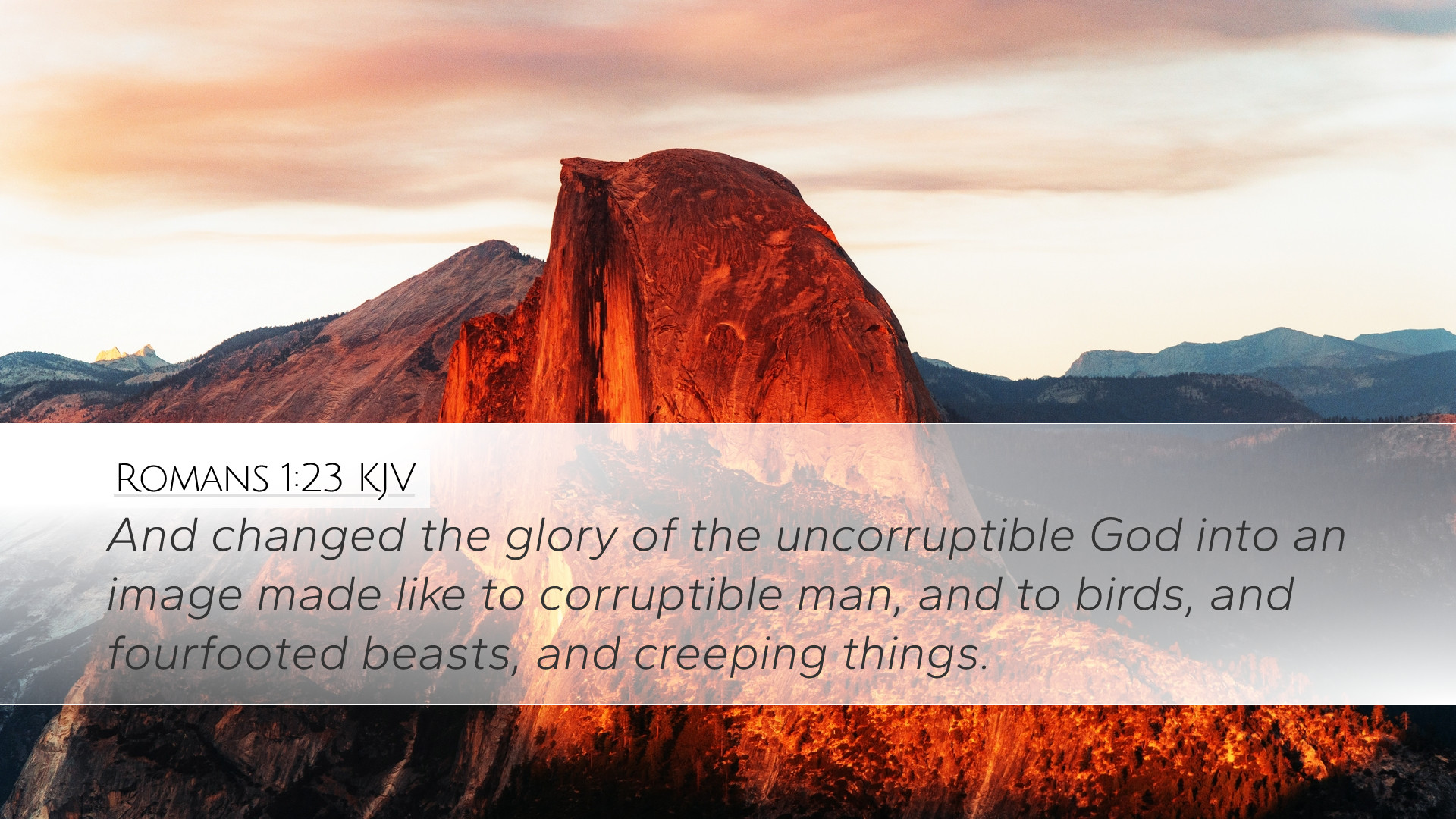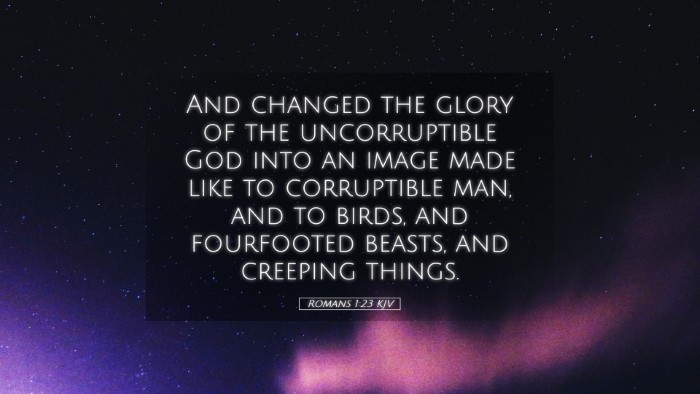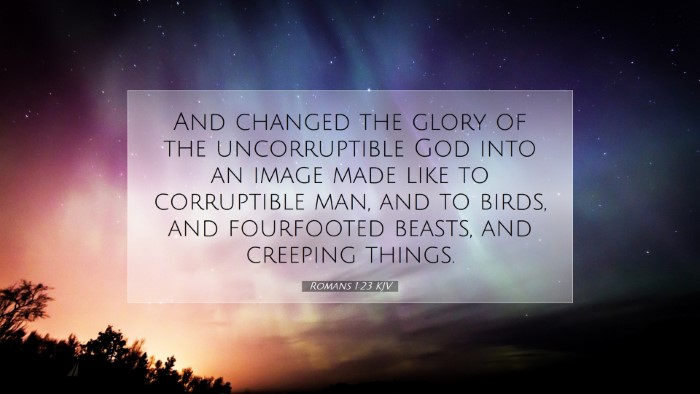Commentary on Romans 1:23
Verse Text: "And changed the glory of the uncorruptible God into an image made like to corruptible man, and to birds, and fourfooted beasts, and creeping things."
Introduction
The Apostle Paul, in his epistle to the Romans, addresses the fundamental failure of humanity to acknowledge and glorify God appropriately. Romans 1:23 captures the essence of the sinful replacement of divine glory with idols, a theme that resonates throughout scripture and serves as a critical theological and moral lesson.
Contextual Overview
Paul articulates the consequences of humanity's rejection of God. The verses preceding Romans 1:23 (i.e., Romans 1:18-22) establish the context of divine revelation and human accountability. God’s invisible attributes and divine nature are clearly seen through creation, leaving humanity without excuse. Yet, rather than worshiping the Creator, people have opted to create false images, a profound act of spiritual corruption.
Theological Insights
-
The Nature of Idolatry:
Henry states that the act of creating an image somehow diminishes the honor of God. In attempting to depict God in physical forms, humanity projects their own limitations onto the divine, thereby reducing His infinite majesty.
-
Corruption of Divine Glory:
Barnes emphasizes that by changing "the glory of the uncorruptible God," humanity chooses a corruptible and limited representation. This change reflects a profound misunderstanding of God’s true essence and character, leading to spiritual degradation.
-
God's Response to Idolatry:
Clarke notes that God’s glory is unchangeable, and the placement of human imaginations in place of divine truth leads to dire spiritual consequences. Romans 1:24 indicates that God gives them up to their corrupt desires as a form of judgment.
Exegesis of Key Phrases
-
"Changed the glory":
This phrase indicates a deliberate act of exchanging the innate splendor and purity of God for something inferior—a grave sin according to Henry, who emphasizes the severity of such a transgression against the Creator.
-
"Image made like to corruptible man":
The images produced by humanity attempt to capture divine characteristics in finite forms. Clarke notes that this reflects a fundamental disbelief in the immeasurable greatness of God, a theme also found in the Psalms (Psalm 115:4-8).
-
"Birds, and fourfooted beasts, and creeping things":
Barnes explains that the progression from the sublime (the glory of God) to the base (creatures of the earth) illustrates humanity’s tragic descent into idolatry. Each category of creatures signifies a broader scope of the fallen human heart’s inclination towards worshipping the created instead of the Creator.
Historical and Cultural Significance
In the ancient world, the worship of physical statues and images was rampant among various cultures. This practice reflects humanity’s struggle with the concept of infinity—people sought tangible objects to represent their deities, showing a yearning for connection alongside a fundamental misunderstanding of the divine nature.
Practical Application for Today
This scripture stands as a warning against modern forms of idolatry that might not involve physical idols but rather the elevation of earthly priorities above a relationship with God. For pastors and theologians, this passage encourages a call to examine the cultural idols prevalent today—wealth, fame, technology, and self—that may distract from true worship.
Conclusion
Romans 1:23 serves as a powerful reminder of the importance of recognizing God’s glory in its fullness. By understanding the gravity of exchanging God’s truth for lies, both believers and non-believers are challenged to realign their worship and acknowledgment of the divine. The insights from the public domain commentaries of Matthew Henry, Albert Barnes, and Adam Clarke offer depth and clarity to this specific verse, rendering it a critical verse for meditation, teaching, and personal reflection.


